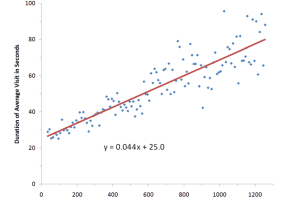(Picture)
Walking through the dining halls on Friday, Saturday, and Sunday morning, you will surely see a large proportion of students who look like they have seen better days. If it is the weekend, it generally safe to assume that these students were a party the previous night, and are suffering from the achilles heel of all college students. The hangover. However not all people get hangovers, no matter how much they drink. These people have been gifted with the magical ability to shake off their previous night, and hit the ground running the next morning. How is it that some people feel like they were hit by a bus the morning after drinking, yet there are others who all it takes is a little sleep and then they are ready to go again?
(Picture)
Sadly for all the hangover people out there, the problem may be in your genes. A study conducted on twins in Austraila, found that genetic varients may partially account for the reason some people get hangovers. The study also went on to note that those with the genetic variation also reported going out and drinking more than those who did not have the gene. The study was conducted by having 4,000 Australian twins answer a phone survey on their drinking habits for the past year. Knowing that I can barely remember how many meals I ate last week, this set up is not ideal, but the vast number of participants were used to counteract any false reporting. The results were that “The researchers found a strong correlation between identical twins in reports of hangover frequency as well as hangover resistance, suggesting that the genetic similarities of some twins played a part in their hangover susceptibility.” According to doctor Wendy Slutske who is a professor at the University of Missouri-Columbia, identifying a “hangover gene” could be the next step in figuring out why some people are susceptible to alcoholism.
According to a Korean study, there may be another compound involved in the equation too. Their study pointed at cytokines as begin the culprit behind hangovers. Their study, which involved taking blood from 20 sober men, then taking blood again 13 hours after drinking, found an increased level cytokines. The results showed that although cytokines were linked to hangovers, some participants had lower levels than others. Those who had lower level reported having less extreme hangovers, than the participants who had high levels. Interestingly enough the cytokines, which are commonly found in an immune response, can actually be used to form an artificial hangover. If you inject enough of them into a healthy subject, then you can give someone the symptoms of a hangover without the drinking.
However it may not actually be better to be hangover free. First off, those who do not feel the effects of the hangover have no reason not to go out. This can commonly lead to over drinking because people feel they are “immune to alcohol”. Also those who are hangover free may be processing alcohol faster than those who don’t get hangovers. This may free them of the short term effects, but it makes them more susceptible to the long term problems that come with alcohol. At the end of the day, you may think that your buddy is lucky because he is hangover free, but in the long run, it may be those who have it worst who come out the best.










